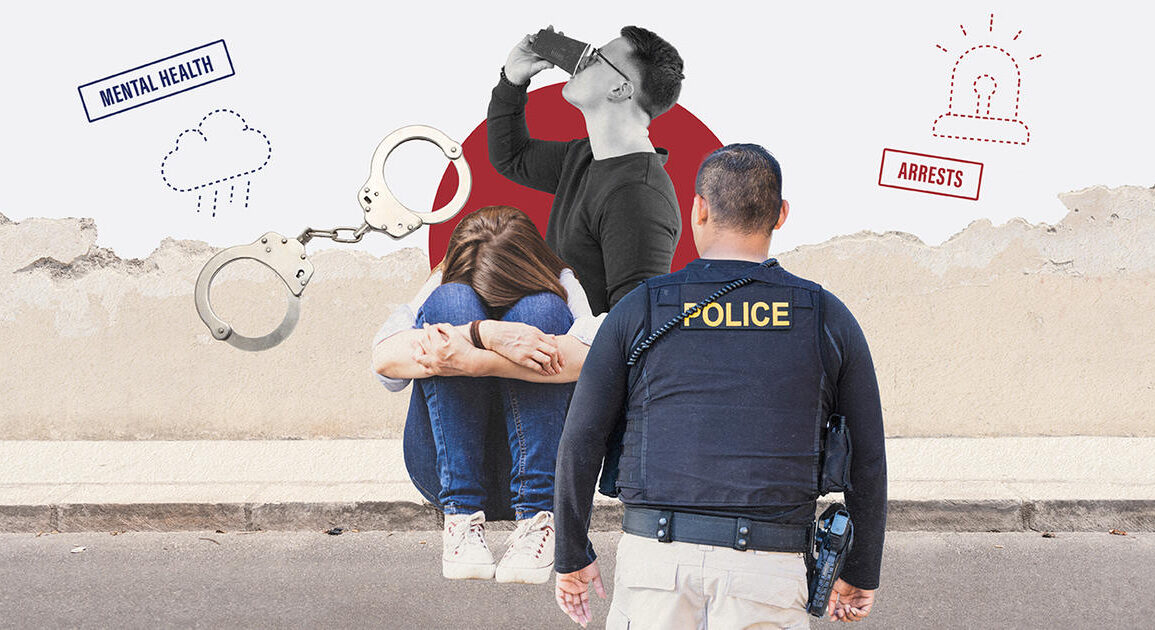
The student victim
Recent UNESCO statistics show over four million students involved in increasingly popular cultural and study programmes abroad. Far from home, this younger segment of travellers can be overly enthusiastic as well as vulnerable, impressionable – and more heedless of personal safety. They tend to take risks and become involved in legal situations and accidents more than older travellers.
Their legal problems often result from over-imbibing alcoholic beverages in countries where teenage drinking is an acceptable norm. An arrest for lesser violations such as malicious mischief, drunk and disorderly behaviour, or even driving while intoxicated can often be summarily disposed of with the proper legal guidance. (Legal complications that can follow a conviction on such charges were addressed in part one of this article.)
Recent UNESCO statistics show over four million students involved in increasingly popular cultural and study programmes abroad
Study-abroad students are also more prone to participating in public protests and demonstrations than the general travel population – events that, in many countries, involve massive police presence and result in large numbers of arrests. Arrests with a political overtone can be particularly difficult and call for the assistance of knowledgeable local counsel, the sooner the better.
Allegations of sexual improprieties occur with unsettling frequency among male students; when this happens, they can benefit substantially from prompt referral to a knowledgeable local lawyer. Young women who are dealing with the traumatic effects of an unwanted sexual encounter – another common occurrence often involving alcohol and a new-found sense of freedom – will likely appreciate help in navigating the local justice system, including assistance with the local police and prosecutor. We recently advised a father who travelled to Italy to assist his daughter following her sexual assault facilitated by wine laced with a date-rape drug. With a concerted effort, including several consultations with us, the father convinced local law enforcement to take a more aggressive posture, locate and arrest the assailant, who now faces serious charges.
Mental health concerns
While homesickness and language barriers can affect any studyabroad student, some suffer from culture shock and feel the stresses of living and studying abroad acutely; when exacerbated by loneliness or a sense of isolation, the combination of factors can precipitate a mental health crisis. The need for a mental health component in travel insurance has become increasingly important for the study-abroad population. The companies participating in our survey acknowledged that student mental health crises have become the most frequent reason a student has to be removed from a programme and brought home. Insurers have become increasingly sophisticated in handling these situations from a medical standpoint.
The advantages to both insureds and insurers of a legal services benefit in these complex situations should not be overlooked. Some of the most dangerous and difficult legal problems we have encountered involved study-abroad students who suffered a psychiatric episode resulting in arrest. Foreign arrest procedures and imprisonment in a foreign jail present an excruciating problem for students, their families and the programmes involved. Obtaining badly needed psychiatric care at an acceptable level can be a daunting experience but essential to avoiding a conviction and incarceration.
The case of the US student
A student from the US who had an emotional breakdown in Tokyo smashed a car window and punched the driver when he exited his vehicle to stop her. Her arrest and incarceration in a local jail exacerbated an acutely dangerous situation because no one there spoke English and the psychosis was not addressed. Prosecutors in Japan have a 99 per cent conviction rate and prisons there are among the most restrictive in the world, with frequent severe punishment and intense isolation: a disaster for anyone, especially someone suffering from an acute mental health problem.
We coordinated an extended and concerted team effort including multiple middle-of-the-night calls, convincing a local lawyer to help the non-English-speaking court-appointed lawyer, providing expertise in prepping the court-appointed lawyer so that he could prevent a possible additional marijuana charge (THC had been found in the student’s blood). He advised her family as to the complicated restitution process for the victim, facilitating the student’s transfer to an acceptable psychiatric hospital once the police were persuaded to drop the criminal case, coordinating with the local agents of her study-abroad programme and the assistance company to obtain her release from the hospital, and having her certified as fit to fly home with a medical escort physician and her father to keep her calm. After more than three weeks of effort, she arrived home safely, received psychiatric help, and soon resumed college in the US. Our endeavour also included making sure that the cost of the several weeks of hospitalisation in Tokyo was paid for by the Japanese health system, a substantial saving for the insurer.
Those in cultural works programmes, such as camp counsellors and au pairs, also frequently become involved in legal problems
Considering procedures currently in place for handling a foreign arrest, this situation could easily have been a disaster. Merely providing a list of lawyers could not have achieved this result. Insurers and assistance operations also benefit greatly when these situations are resolved in a positive manner with the additional advantages of avoiding negative publicity.
Those in cultural works programmes, such as camp counsellors and au pairs, also frequently become involved in legal problems. Unaccustomed to driving in the US, for example, they are often ticketed for a wide variety of driving infractions such as those mentioned in part one. Both have been charged with much more serious charges as well, such as neglect or abuse of children. Since most cannot afford private counsel, the legal assistance benefit should be prepared to offer guidance and help access the court-appointed counsel or public defender.
The case of the UK teen counsellors
Two UK teenage summer camp counsellors in New York State were arrested and charged with improper sexual activity involving several campers with disabilities. A felony conviction would have destroyed their lives and likely could have included imprisonment. The case was reduced to a lower-category misdemeanour after the police report ultimately did not rule out ‘playful hazing’ as an alternative to sexual abuse. We were able to assist the court-appointed lawyers by arranging for the counsellors’ probations to be supervised in London, the first time this had been approved by any court in New York. The counsellors were given probation as part of a deferred sentence; the charges were dropped upon completion of their probation period in London and their public service assignments, avoiding a permanent criminal record.
The case of the au pair
A European au pair in the US met a young man in a bar. They drove to an empty mall parking lot and, while getting to know one another, a car window was smashed in, the door opened, and the au pair pulled out and raped by an unknown assailant. We recommended a local attorney, who helped her navigate the postassault process of testing, counselling and dealing with the police and district attorney’s office. He then sued the mall on her behalf for failure to provide proper security. The financial settlement compensated the victim for her injuries and trauma and reimbursed the medical bills paid by her travel insurer. Our involvement of the attorney provided maximum protection for the insurer’s subrogation interests.
The issue of responsibility
None of this is to suggest that insurers have a responsibility to act in loco parentis (instead of the parent). It is, however, the responsibility of the scholastic and sponsoring institutions and programme operators to provide for the safety, wellbeing, and medical care of those studying abroad. The programmes are subject to strict governmental rules requiring medical insurance in amounts that guarantee adequate care, including, when needed, an upgraded flight back to a participant’s home with a medical escort and/or family member. Mindful that such rules establish minimum standards to be followed, we suggest this duty of care extends to providing proper assistance in non-medical crises such as arrests, injuries and other legal problems that can imperil young people in these programmes. One adverse verdict on the question of exercising due care can render the cost of the benefit paltry by comparison.
A free legal consultation also has financial benefits for both insureds and insurers. Involvement of counsel has been a reflexive initial response to a loss reported to property and casualty insurers for decades. Accidents causing injuries occur much more frequently than all other legal situations combined. Road traffic accidents are the leading cause of traveller deaths and serious injuries worldwide. In the case of an accidental injury claim, prompt referral of the insured to a reliable accidental injury lawyer in the jurisdiction where the accident occurred for assessment of the accident scenario can assist insureds who deserve to be compensated for their injuries, and the referral can also maximise the opportunity to protect subrogation rights.
Lack of knowledge
Insureds often know little, if anything, about the attorneys they retain following an accident. Many do not know that legal representation in accident cases in the US is on a contingent fee basis, which is increasingly utilised, in some variation (such as a conditional fee basis, as in the UK), in other jurisdictions as well; or that in the US, attorneys pay the costs of legal process. Unfortunately, none of the companies we consulted for this article had protocols in place that were calculated to provide prompt contact information for an experienced, reliable attorney where an accident has occurred. We are currently working on a case in which the insured was permanently disabled in a fall at an indoor rock-climbing facility. We were not notified of the accident until several months had passed. By then, the climbing harness, which had reportedly failed, had been disposed of, precluding any reliable assessment of the accident scenario or responsibility for it. Prompt involvement of counsel might have protected the rights of both the insured and insurer.
None of the companies we consulted … had protocols in place that were calculated to provide prompt contact information for an experienced, reliable attorney
Simply put, the need for and importance of a legal consultation/ referral benefit for travellers, expats and student/cultural programmes have been overlooked as a recognised component of the industry’s genuine concern for insureds. The benefit can often minimise, if not eliminate, the chance that an insured might suffer the traumatic effects of an often dysfunctional foreign criminal justice system and the misery and disaster of complications, disruptions and dangerous entanglements that can ensue when insureds confront other types of crises as well. The benefit can provide peace of mind for insureds who encounter non-medical emergencies as well as accidental injury. The legal counsel benefit is an additional marketing tool that should easily offset the costs incurred and can generate goodwill as well as financial benefits through subrogation. In addition to the tangible benefits for insureds and insurers, there is the important intangible benefit for insurers and assistance companies of knowing that they really helped.
This post was originally published on this site be sure to check out more of their content.









